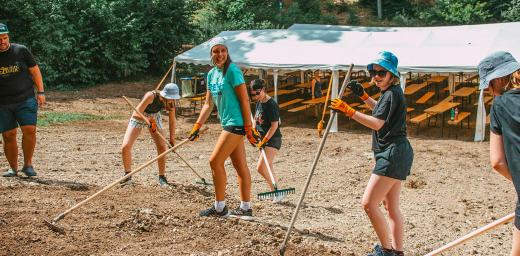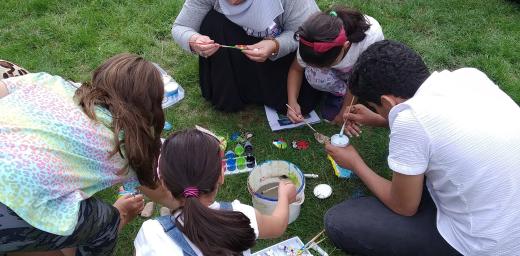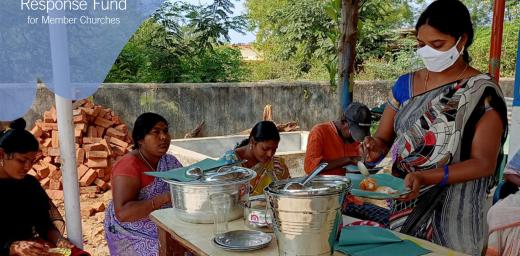COVID-19: Cuban Lutheran church extends food and psychosocial aid
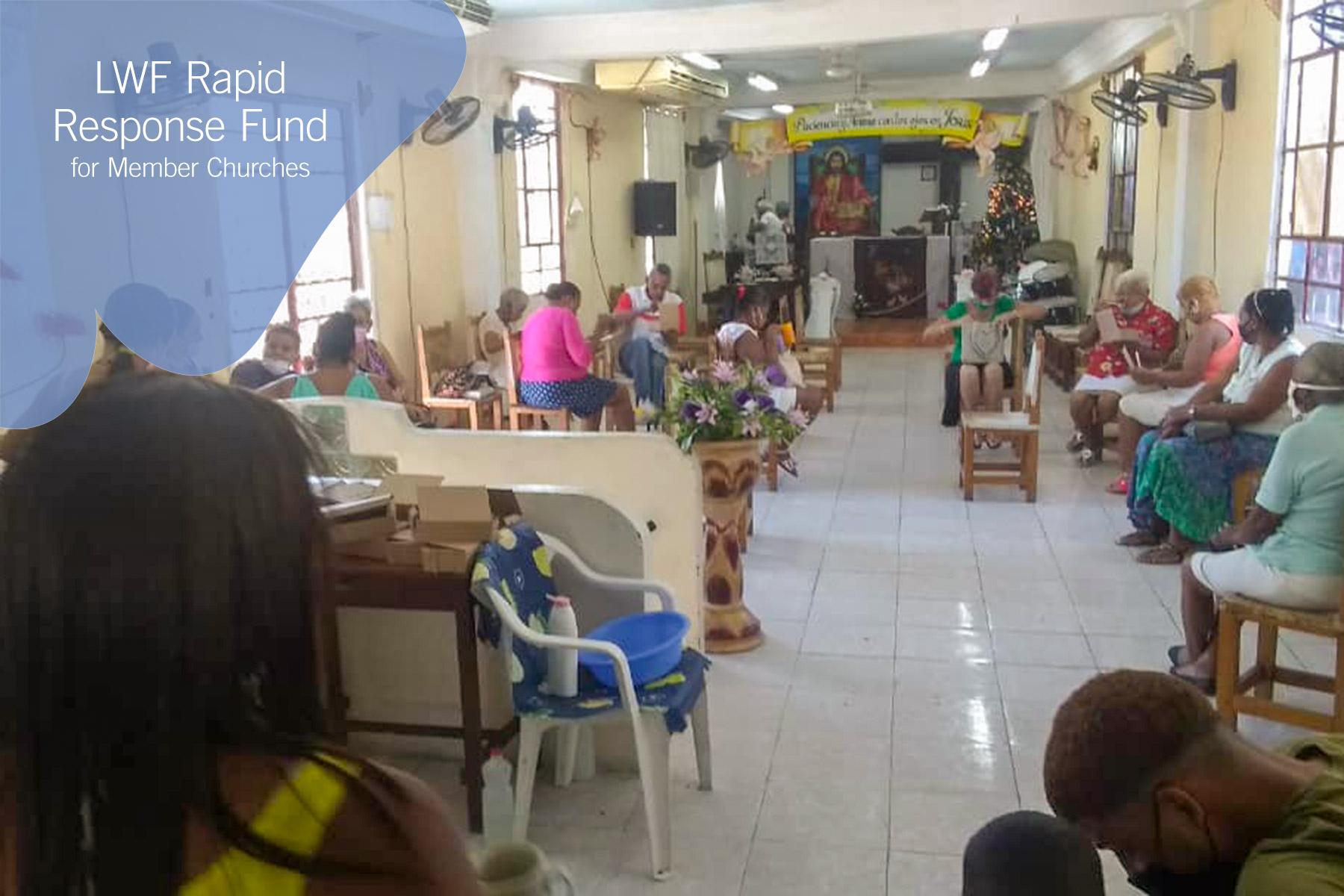
In one of its COVID-19 response activities, the Cuban Lutheran church organized a community lunch for 320 people including members of the congregations of Cristo Vive, Cristo Redentor, Nuestro Salvador and Aposento Alto. Photo: IEU-SL
Assistance from the LWF reaches a growing number of people in need
(LWI) – When the United Evangelical Church in Cuba Lutheran Synod (IEU-SL) assessed categories of people who would require urgent assistance due to the prolonged impact of the Coronavirus disease (COVID-19) pandemic last December, the initial target was 600 individuals in 200 families. By the end of January, that number had increased by 50 percent to reach 900 people in almost 300 families who needed food to survive, hygiene items including face masks and sanitizers, psychosocial support, and assistance to purchase medicine.
The Lutheran World Federation (LWF) is supporting its member church in Cuba to continue offering assistance through the communion’s COVID-19 Rapid Response Fund (RRF), now in its second phase. Churches that apply for funding receive up to EUR 5,000 for coronavirus related emergency needs.
Like many other countries around the world, the lockdown measures and movement restrictions to stop the spread of coronavirus have had a significant impact on the country’s economy, pushing already vulnerable households to the brink. The prices of basic commodities and food increased, especially for pork, which is widely consumed. The Lutheran church sought out families already facing difficulties who suddenly found themselves without means of earning a living, people with long-term health conditions and disability, and the elderly, including the church’s pastors and other workers.
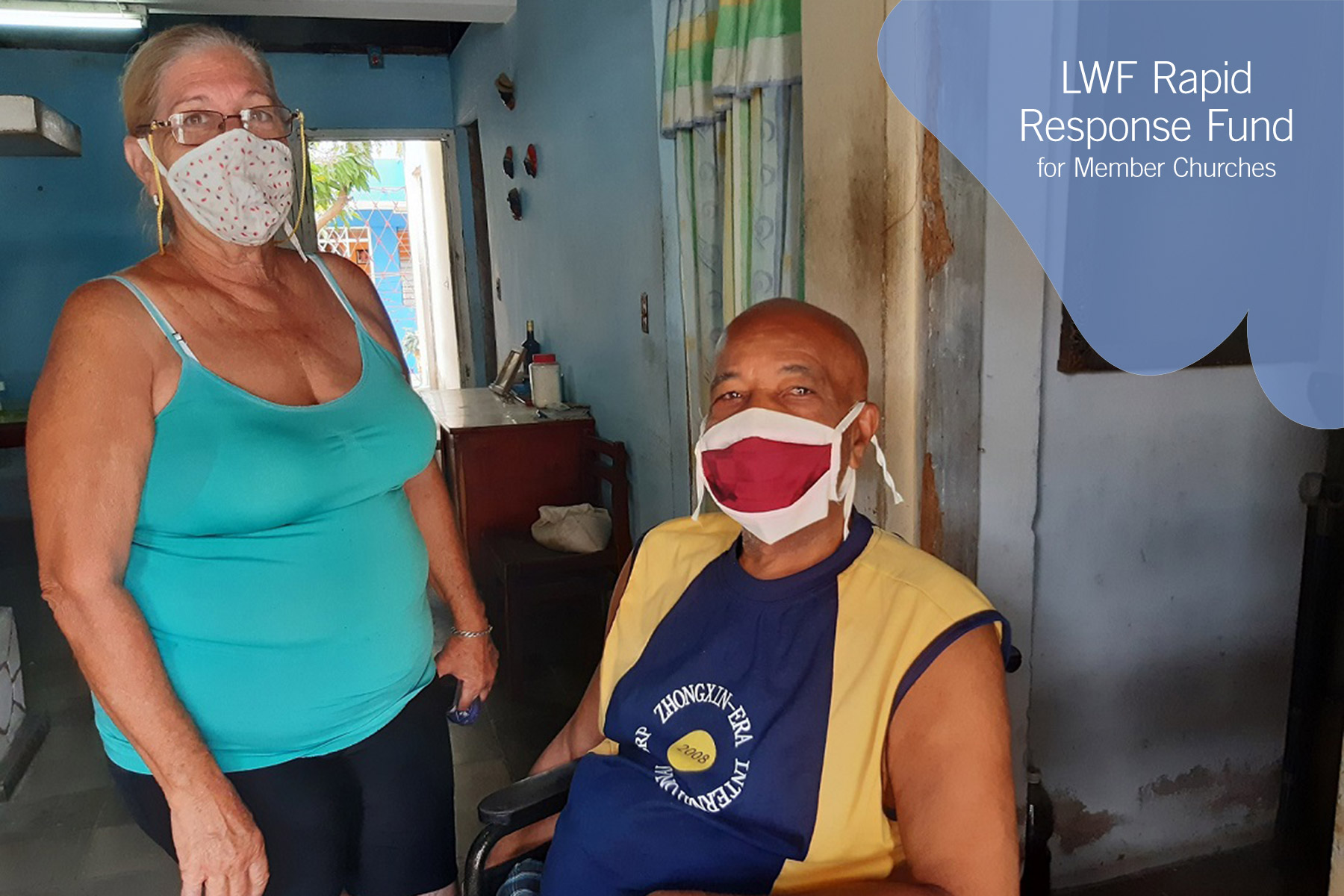
Hilario Bell Hilesde (right) uses a wheelchair to move around after one of his lower limbs was amputated following illness. IEU-SL deaconess Esperanza Vega González, visiting Bell, who received food supplies, hygiene items and psychosocial support. Photo: IEU-SL
When distribution started early this year, the selected households received USD 10 each to purchase toiletries and additional food, both of which are scarce due to government limitations. Vulnerable households could also purchase an additional 5 pounds (2.3 kilograms) of pork.
Those who have benefited from the church’s assistance include families of people living with HIV and AIDS, and those suffering from mental illness, who in addition to being sick, are without employment.
“Those who have benefited from the church’s assistance include 35 low-income families of people living with HIV and AIDS (PLHA) and those suffering from mental illness, who in addition to being sick, are without employment,” said Daniel Malsabal Mas, coordinator of IEU-SL assistance, and leader of the Santiago de Cuba PLHA network.
Other volunteers like Yanet Silva Alvear provided psychosocial support to expectant mothers at the Tamara Bunque maternity hospital in the province of Santiago de Cuba, and to single parents and the elderly.
Cuba, with a population of 11.3 million people, had relatively few cases of COVID-19 in the first months of the pandemic in 2020. When the government relaxed a month-long lockdown and curfew last September, the number of COVID-19 cases had reached 6,000 including 122 deaths. By 25 February, almost 47,000 people had contracted coronavirus and over 300 had died, according to the World Health Organization.
“In Cuba the situation is now much more critical than in 2020, as the country’s health system struggles to cope with the rapid and uncontrolled spread of the virus,” IEU-SL Bishop Ismael Laborde Figueras said. He also noted that around 20 members from different congregations, who had been directly affected by COVID-19 had recovered.
“We thank the LWF for the support we have received,” Laborde added.
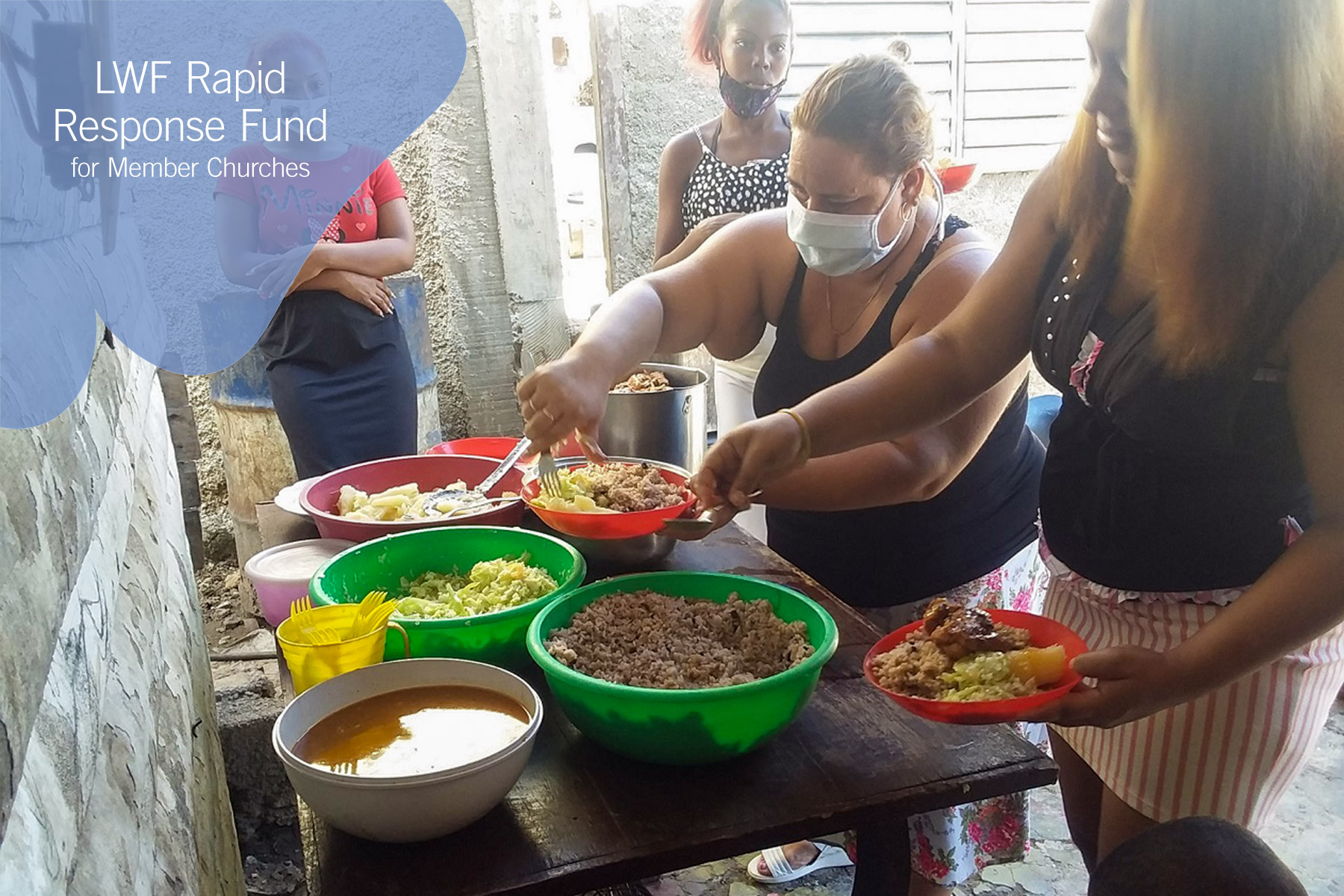
Local residents during a community lunch organized by the Cuban Lutheran church. Photo: IEU-SL
By LWF/P. Mumia
The second phase of the LWF COVID-19 Rapid Response Fund was launched in October 2020 and the funding disbursement began in December 2020. The goal is to continue supporting the communion’s member churches, particularly the most vulnerable ones that still require urgent assistance during the global health emergency. Similar to the first round, churches receive a grant of up to EUR 5,000 for their approved projects from the global fund supported by LWF’s member churches and partners around the world.
The IEU-SL has 1,500 members in 11 congregations across seven provinces. It joined the LWF in 2018.


